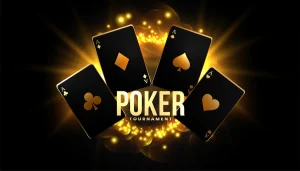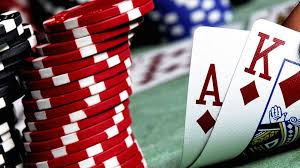
The game poker has grown significantly in popularity in recent years. While it has always been a well-loved form of entertainment for many just like F1 games, a huge market for online play and television spectatorship has emerged. The value of the global online poker market is expected to reach over $127 billion US dollars by 2027.
Land based casinos are also popular. Las Vegas, which is considered to be the gambling capital of the world, sees over 40 million visitors to its city casinos each year. People from across the world travel to Sin City each year to watch and play poker and indulge in all the glamor and luxury that Vegas’ vibrant gambling scene has to offer.
There has always been much debate surrounding if poker is a game of skill or if there is a degree of luck involved. As demand for the game has grown, it is little surprise this question has been receiving more attention recently.
This debate even has legal implications, with many countries having different laws and regulations for games that are based on skill or based on luck. Therefore, this argument has weighting over whether poker rooms and online sites can operate in some locations.
So, what are the reasons for many people considering poker to be a game of chance?
For starters, poker in casinos is often played alongside games such as slots, roulette, and blackjack, all of which have outcomes that rely on chance to a high degree. This could lead to poker games being considered a game of luck through its association with other popular casino games.
A study conducted by researchers in 2013 looked at the extent to which the influence of poker playing skill was more important in winning than card distribution is. Their study consisted of an even number of average players and those classified as expert poker professionals.
They each received the same number of ‘winning’ cards, average cards, and ‘loser’ cards. This manipulation to card distribution helped to control the element of chance and in practice gave the participants the same level of luck.
The result was that the expert poker players did not win significantly more than the average poker players in terms of their final monetary balance. The implications from this study would indicate that card distribution (and therefore chance) was the deciding factor in game outcome rather than skill.

However, it is more commonly argued that while there is an element of luck involved in playing poker, skill has a much bigger impact on game outcomes as more games are played in the long term. So, by this understanding, while a novice player might make some small wins over a series of games, an experienced player who develops their skills and poker strategy will make more gains over time.
A database that analysed 456 million player-hand observations from one year of online poker found that there was substantial evidence for the role of skill in being successful at the game, similar to Wordle games, there is quite a bit of skill, but also an element of luck. Players classed at being in the top ten percent for performance in the first six months of playing achieved similar levels of success later in the year, suggesting that their advanced skill level had a significant impact on game outcomes.
In practice poker is usually played as a long-term game with most new players going in with the mindset that they are unlikely to make money inside 60 hands. Those training to be competitive poker players report that they are playing anything from 200 to 10,000 hands per day as practice.
Furthermore, there is a huge market around poker skill development and strategy. Players of poker spend huge amounts of time-consuming skill development resources, such as books, podcasts, video training courses and even in-person seminars.
If these skill development resources had no material impact on a player’s poker ability, it is unlikely that consumers would continue to invest large amounts of the time and money into them.
There are a number of legal implications that come with the debate around whether poker is a game of skill or chance and these have shaped gambling legislation in a number of countries. For example, in the United Kingdom players do not have to play any tax on their winnings.
In the United States, it was reported in 2012 that a New York judge tossed out a conviction in regards to an illegal gambling enterprise. Their reasoning was that poker is more of a game of skill than chance like other forms of gambling, therefore it should not be prosecuted under the US federal law regarding illegal gambling businesses.
Before this case no federal court had ever ruled on whether poker constituted a form of gambling. This was a ground-breaking case that really added weight to the skill vs chance argument.
Countries around the world are taking a range of viewpoints on the matter. For example, in India the Calcutta High Court has also ruled that poker is a game of skill, just like football games and can’t be regulated in the same way other forms of gambling, such as slots, are.
While this topic is still very much up for debate with poker slowing becoming mainstream within smartphone games, the general consensus from interested parties and those in the industry is that poker is more of a game of skill, particularly in the long term, however there is still an element of luck involved in winning individual games.






